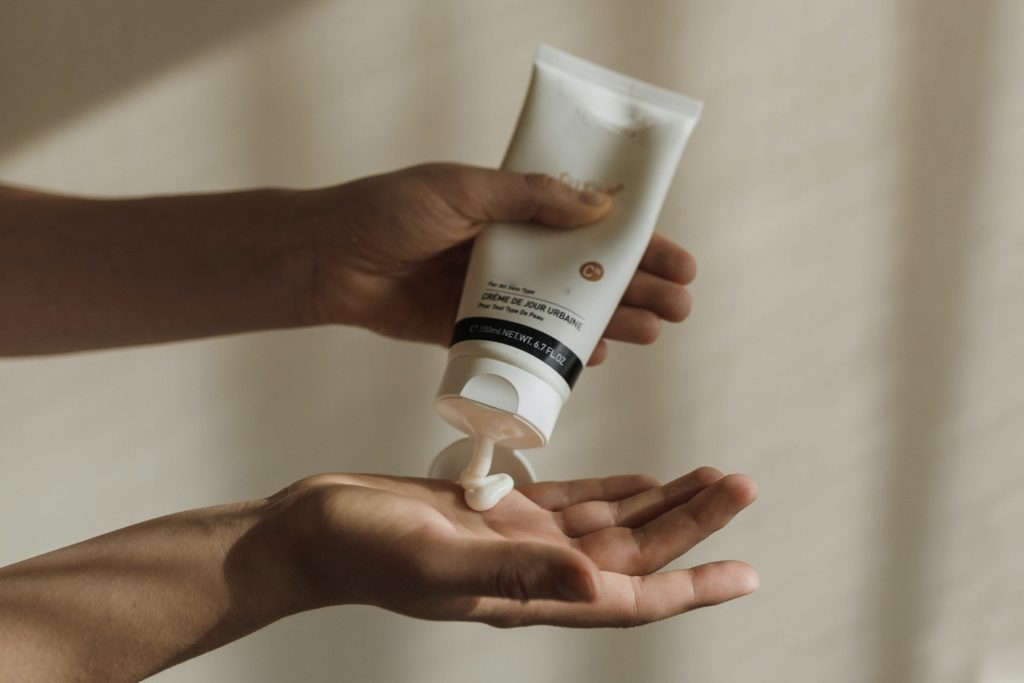As we discussed in a previous blog, you need to know how to approach agents to gain access to possible deals. In addition to contract negotiations, sports agents serve as a liaison for their clients in many aspects of their lives beyond the court or field. So what do agents look for when businesses approach them about their clients; and what kinds of opportunities are they seeing with brands?
I recently sat down with Mitchell Eisenstein, President of the The Franchise Agency, to discuss how brands can successfully work with agents and their clients. The Franchise Agency is a full-service talent agency specializing in NFL Player Contract negotiation, athlete brand development and endorsement procurement and influencer marketing. He works with players such as Richard Sherman of the 49ers, Bobby Wagner, Cliff Avril, and Kam Chancellor of the SeaHawks, Darius Slay of the Lions, and Casey Hayward of the Chargers.
Partnership examples
So what types of brands are a well-known athlete like Richard Sherman working with? His background and education, in addition to his talent, has provided some interesting and varied opportunities.
Richard is one of these guys that being a Stanford grad, having a unique background—being raised in Compton, is marketable and appealing to brands. He’s a very interesting, unique individual with a brilliant mind and an incredible story. So, I’ve really had a lot of success in partnering him with a number of different companies. You know, with your conventional endorsements like Nike and Beats by Dre, but he’s also been a spokesman for Wonderful Pistachios for three years.

And on top of endorsements, many athletes realize there are vast opportunities for unique partnerships beyond the typical promotions. In Sherman’s case, he co-founded a fantasy football company platform called Daily Number, is a partner and equity holder with BODYARMOR Sports Drink, and is also working with a Silicon Valley based VC fund.
He’s essentially a limited partner of the fund and he does a lot of event work for them, speaking at meetings and things like that. So, that’s been a really fun opportunity to work with him on.
But something Mitch does see trending is that many of his clients are looking for projects they are passionate about, even if they are a start-up.
With Richard and with a lot of my guys—it seems what is becoming more and more the norm is partnering with companies they are truly passionate about. I ask my clients for a list of companies or products they love and focus on finding opportunities for them around their interests. This has created a lot of opportunity to dive into those passion points and develop relationships with companies that may be earlier staged start-ups and structure deals that not only get my clients monetary compensation but also provide them with equitable compensation and long-term earning potential.
What agents are and aren’t looking for
As we mentioned in a previous blog on contacting celebrity agents and their clients, finding an influential person to offer you their voice of support is one of the best promotional strategies to help a business succeed in increasingly competitive markets. So in the world of sports, what can new brands do to secure a professional athlete for an endorsement or partnership; even sometimes on a limited budget?
Eisenstein, while admitting that they accept a small number of startup opportunities, likes to focus on getting to know a business, their philosophy and background, and its key players before introducing a deal to his clients. He also points out that he usually requires equity opportunities for those he represents.
Ultimately my clients are the ones that are believing in these companies. And if the company they are endorsing goes belly up, you know, ultimately my clients are the ones who face the public eye of it. So, we generally require some form of cash fee and then we structure out equity on the backend to mitigate against the risk of the company not succeeding.
So how do conversations with brands begin? Eisenstein explains that it’s often a mix of agents actively looking for opportunities for their clients and businesses reaching out on their own to discuss collaborations.
On occasion, we’ll get approached by a company that is interested in doing something with a client. It either comes from the agent doing his job and reaching out to companies and striking up a conversation, or them reaching out to us and we evaluate the opportunity and bring it to our client if the opportunity is something that is worth presenting.

As we have covered in a previous article, there are certain things agents look for when they are fielding requests for their clients. So, for the startup reaching out to a sports agent, Eisenstein has some sage advice.
You need to make sure that a company is in a position so that when, you know, millions of eyeballs are on your company, you’re able to succeed. We’ve had situations in the past where the company just wasn’t ready to bring on an endorser because they were too early staged and didn’t have the proper infrastructure to hold 1000s of visitors in a moment’s time. So, my advice for these startups is 1), make sure your company’s in a position where you’re able to bring on an endorser. And 2), do not to just bank on the endorser making your company successful.
Eisenstein also points out that while endorsements are a great compliment to any brand, they should never be relied on for 100% of the promotion and marketing of a business. He explains that many agents are not partnering with companies that are relying on their clients to make them a household name.
We’d rather partner with people that have a great infrastructure, great marketing strategy, and a great group of hardworking individuals that we know are going to be successful with or without the celebrity endorsement. That’s my best bit of advice for them, is just making sure they’re in a position to add a celebrity endorsement, and not putting the cart before the horse, per se.

While having your marketing campaign and company messaging in-line before approaching an agent is important, there is also much that can be done on the structure side of a deal to secure a fair level of celebrity involvement. We have heard from some brands that while the endorser starts out with a certain level of involvement; their participation tends to fade with time. How can brands avoid this? And, what do agents look for on their end to ensure the synergy is right for a long-term partnership? Einsenstein points out that his agency does tend to focus on long-term projects, rather than one-off promotions.
All the guys want long-term opportunities to get to know the individuals that are part of the company. Fortunately for us, we’ve been able to form those relationships. Each relationship’s a little bit different, but typically your endorsement deal is structured out with a one-year term designation and depending on the success of the partnership, you can choose to renew at the end of each year.
He uses Sherman as a great example, citing that after several businesses have worked with him and gotten to know his family and foundation activities; they have then moved to structure out longer-term deals. This was the case with both BODYARMOR and Wonderful Pistachios.
BODYARMOR was with Richard for two years and enjoyed working him, so they signed him for another 3 years. Like I said, we were also with Wonderful Pistachios for three years and each year was a choice by the brand and Richard to extend for an additional year term. But a lot of the length of the endorsement is about the brand, and their direction. For example, a brand’s current focus may be around targeting sports fans, but a year down the road they pivot and move into fashion, entertainment, or a different category. But from our standpoint, we focus on structuring long-term partnerships that are mutually beneficial to my client and the brand.

Another way to ensure long-term partnerships is having a solid and committed team in place; because let’s face it, no one really wants a deal to fall through. While Eisenstein couldn’t identify any specific actions or points in which negotiations typically flounder, he did note that his experiences with busted deals has been minimal.
The issues I’ve had with deals falling through stem from general employee turnover on the brands side. For example, you’re working with a Marketing Director who really wants to work with one of your clients, and you develop all these ideas around a marketing strategy for the year and then for whatever reason, that member of the company either is transferred to a different brand, takes a new job, or is no longer with the company. That… or gets transferred to a new department.
While it’s key to have an established team and point of contact identified, what else can brands do when they are ready to look for partnerships? One key step is proper communication. In terms of communicating with a celebrity agent, contact should always begin by understanding how best to reach out to celebrity representatives and influencers in a way that sets you apart (in a positive manner) from everyone else. Eisenstein notes that he likes to focus on relationships and the people he is partnering with; but being concise and professional is important.

You don’t want a super, super detailed email. I always say, ‘Give me the elevator pitch.’ Keep it clear and concise within a paragraph or two, understanding that I have to communicate this information to my client. I think some of things that go wrong is you’re unprofessional in your outreach saying, “Hey I’ve got a great opportunity that can make your client millions of dollars. Let’s get on the phone.” I don’t even return those emails because it’s probably a pyramid scheme or it’s one of these affiliate program where if you convert 10% of your followers, you’ll make $40,000 a month.
e explains that professionals who write clearly and concisely about their brand and objective will get his attention. But he cautions against sending a mass email in disguise.
You receive these emails that are almost like a boilerplate template email that make you wonder if they’re just sending it out to a hundred different people; it’s really long and overly-detailed. And just understanding that a guy like myself, I’m on my computer quite a bit, but I also travel a lot. If I’m on the road and I look at an email on my phone….you just need to get to your point quicker.
He also recommends brands identify their point in the subject line of the email and include the client name, company name, and paid opportunity.
That’s how you get somebody’s eye and that’s what I would recommend to any of these companies that are really looking to get involved with celebrities and want the management to respond accordingly.

Social media
In addition to getting your message to agents in an effective manner and fostering long-term deals, we also wanted to know if social media promotional opportunities appeal to Eistenstein and his clients?
It depends on the client but, the brands love social media. I’m finding more and more that brands are trending towards Instagram stories. That is the easiest way to integrate a brand that doesn’t overly populate the main feed of the celebrity and it’s something that my clients are a lot more inclined to do. So, we’re seeing a ton of movement towards Instagram swipe stories.
And to add to that, how often are Instagram stories being utilized with his clients and how does it work?
It depends on a deal structure. It depends on a deal structure. Some brands exclusively want Instagram Stories and others use them as a small piece of a larger deal. What we’ll do more times than not is have a production shoot which gives the brand the opportunity to capture all of their marketing materials for the campaign. The brand will send over videos or images to have posted on the Instagram main page or stories, and those are better quality. My clients are more inclined to post that because they’re very professional and on brand.

Fostering personal relationships
Regardless of the type of partnership Eisenstein and his clients are working on, he stresses that one of the most valuable things a brand or startup can offer is the personal involvement of the leadership team.
My clients want to get involved with the CEOs of the company. They want to know who they’re partnering with. So, a lot of times what I’ll do is I’ll actually structure meetings between my client and the CEO of the company. If I know a deal is about to come to fruition and I just want to drive things home more, we’ll set up an in-person meeting with the company and we’ll have their CMO come out, or CEO come out and have lunch with my client and I. And that’s something that my clients enjoy and that gives the brand a great feeling going into the partnership.
He also points out that he encourages CEOs and leadership teams, especially at the startup level, to send regular updates about the company’s progress, major news, and any events to both him and the client.
I have them emailed over to myself and my clients as well. My clients love that because it allows them to see, ‘Okay, this is what the company’s doing. They’re having success. This is great.’ You know, it keeps them excited.

And in addition, he also suggests that startups spend some time getting to know his clients once they have established a partnership. And in line with the company updates, it gives them a level of participation that makes a difference in the long run.
My clients prefer that they have a personal relationship with the brand and I prefer that they do as well. I always CC them on emails and encourage the company to send over monthly or quarterly reports on the progress of the company. That’s another thing I would advise—is that the brand has a great relationship with the manager so that it’s always top of mind, but you’re not force-feeding it. Companies have to understand—and I’m sure they do—that these guys have a life outside of just representing brands.

Navigating the field in securing athlete partnerships and endorsements can seem challenging at first, but as with any negotiation, it’s simply a matter of finding out what’s most important to the agent and their clients to ensure you are the right fit. Listening to the advice and wisdom from professionals like Eisenstein can help you ensure your company is hitting all the right points when searching for a brand collaboration.



